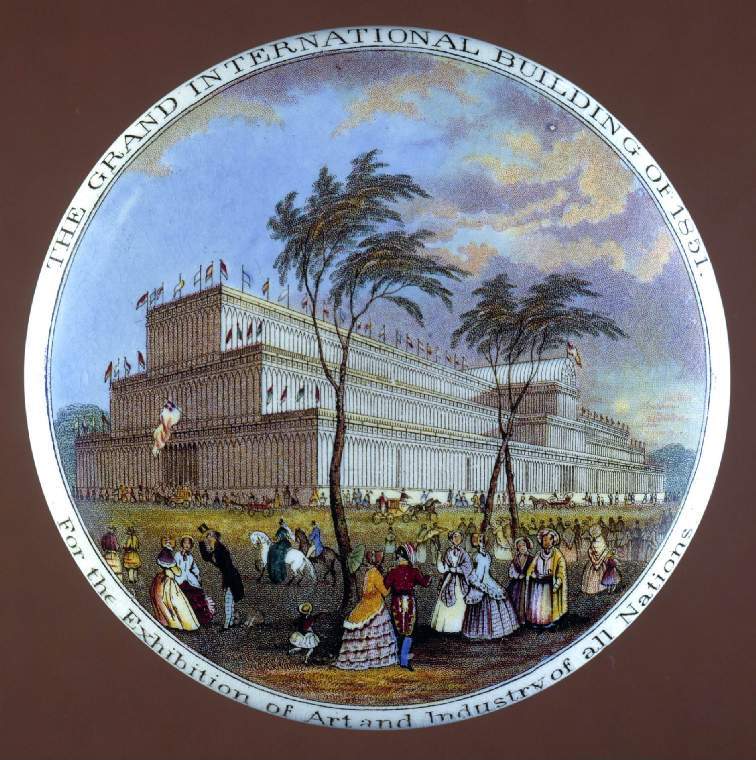Current Location: Gallery 27 (Glaisher)
Titles
The Grand International Building of 1851
Maker(s)
Factory:
T. J. & J. Mayer
Entities
Categories
Description
White earthenware, moulded and decorated underglaze with a multicolour transfer print. Circular. On top of lid 'The Grand International Building of 1851', with white surround inscribed 'THE GRAND INTERNATIONAL BUILDING OF 1851' and 'For the Exhibition of Art and Industry of all Nations.'; black key plate.
Notes
History note: Possibly bought from Stanley Woolston, Cambridge, on 28 October 1924
Legal notes
Dr J.W.L. Glaisher Bequest
Measurements and weight
Diameter: 12.7 cm
Acquisition and important dates
Method of acquisition: Bequeathed
(1928-12-07)
by
Glaisher, J. W. L., Dr
Dating
19th Century, Mid-Late
Victoria I
Circa
1851
-
1900
Note
Lids for pots of bears' grease and various kinds of fish and meat paste were mass-produced from the 1840s. The earliest examples decorated with multicolour underglaze transfer-prints were probably made about 1847 by F. & R. Pratt of Fenton, who employed Jesse Austin (1806-79), the best-known engraver of pot-lid designs. T.J. & J. Mayer of Burslem must have adopted the technique by October 1850, when their customer Cross & Blackwell patented this view of the Crystal Palace. By the time that the Great Exhibition opened on 1 May 1851, both Pratt and Mayer had brought out commemorative pot-lids illustrating the interior and exterior of the building and the opening ceremony. See GPL.221-1918 for Mayer's pot-lid with a view of the interior.
Multicolour underglaze transfer-printing enabled polychrome decoration to be executed without hand-painting. Separate line engravings were made for the black or brown outlines, and stipple engravings for each primary colour in the design. The transfers printed from them were placed on the once-fired lid one after the other with the 'keyplate' for the outlines last. Then the lid was glazed and fired again. The success of the finished product depended on the quality of the engraved plates, and the degree of care exercised in aligning the transfers.
School or Style
Victorian
Components of the work
Decoration
Materials used in production
clear
Glaze
white
Earthenware
Techniques used in production
Moulding
: White earthenware, moulded and decorated underglaze with a multicolour transfer print, black key plate
Glazing (coating)
Inscription or legends present
- Text: THE GRAND INTERNATIONAL BUILDING OF 1851
- Location: On top of pot-lid above scene
- Method of creation: Printed
- Type: Inscription
- Text: OCT.28.1924/W
- Method of creation: Hand-written
- Type: Label
- Text: For the Exhibition of Art and Industry of all Nations.
- Location: On top of pot- lid below scene
- Method of creation: Printed
- Type: Inscription
References and bibliographic entries
Identification numbers
Accession number: GPL.220-1928
Primary reference Number: 14924
Stable URI
Audit data
Created: Saturday 6 August 2011
Updated: Tuesday 30 April 2024
Last processed: Wednesday 14 May 2025
Associated departments & institutions
Owner or interested party:
The Fitzwilliam Museum
Associated department:
Applied Arts




